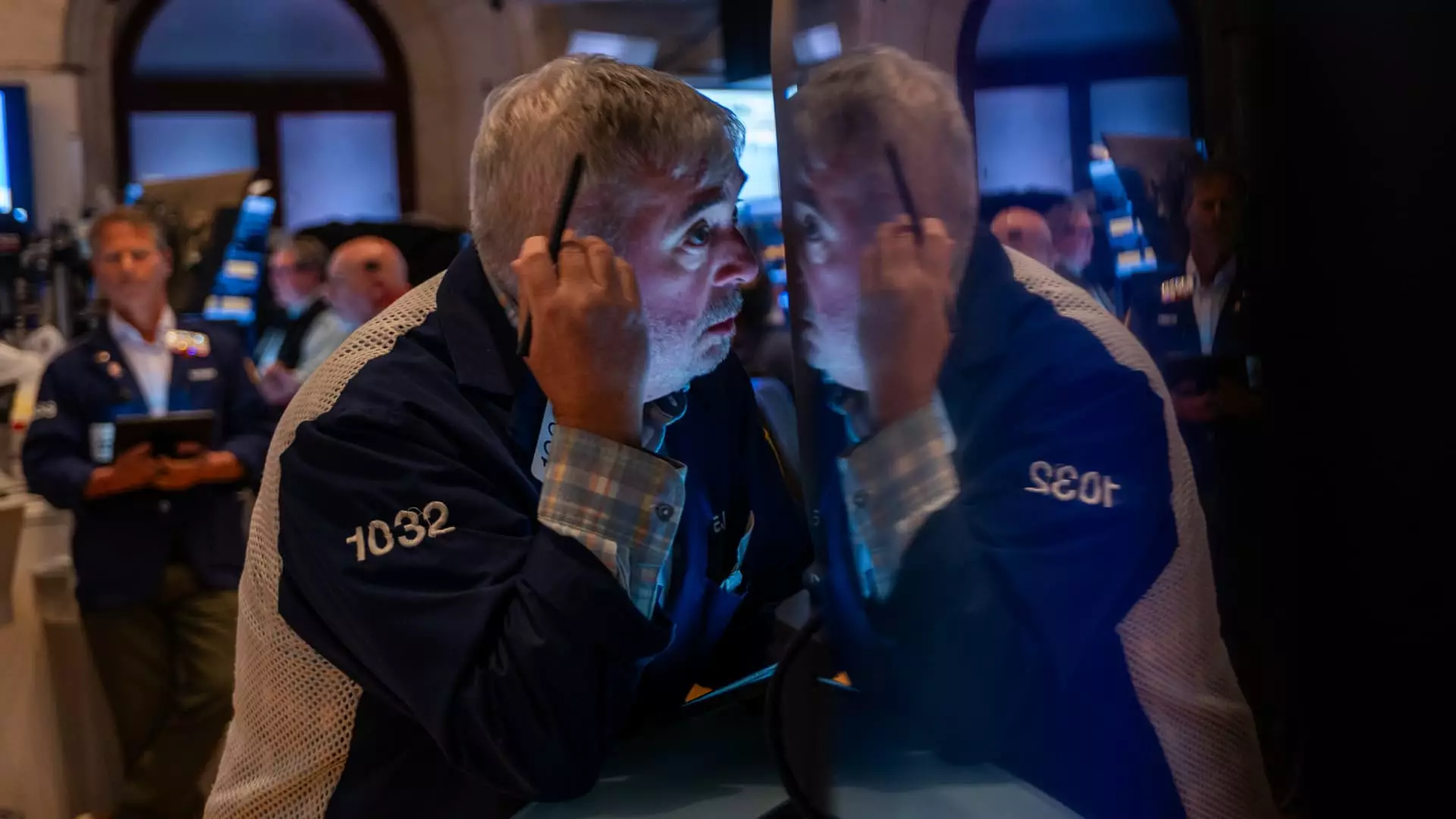In a dramatic turn of events, the unveiling of President Donald Trump’s sweeping tariffs has sent shockwaves through the U.S. stock market, creating a climate of uncertainty that many believed was behind us. With a baseline tariff rate of at least 10%, and in some instances even steeper increases, the financial community is grappling with the grave implications of a potential global trade war. The sell-off in U.S. stock futures—particularly tied to the Dow Jones Industrial Average, which plunged by 918 points—serves as a cautionary tale of the risks associated with unilateral trade policies. Simply stated, this isn’t just a market dip; it’s a stark warning about the fragility of the current economic climate.
The Downward Spiral of Multinational Giants
Shares of multinational corporations, including household names like Nike and Apple, spiraled downward in after-hours trading, reflecting a broader trend of fear among investors. With both giants experiencing a near 7% drop, the immediate fallout raises questions around the viability of these companies in an environment rife with tariffs. When large retailers like Five Below and Dollar Tree tumble by 15% and 11%, respectively, it’s clear that the repercussions of protectionist policies extend far beyond Wall Street—they threaten the very fabric of consumer spending in America. The irony is palpable; a president who once vowed to boost American jobs may inadvertently be making them more vulnerable to economic upheaval.
Miscalculated Risks and Complicated Tariff Structures
Trump’s remarks from the Rose Garden reflect a superficial understanding of the global trading landscape. By asserting that the U.S. would impose tariffs that are “not a full reciprocal,” he fails to consider the complexities involved—complexities that market strategists are now identifying as potential poison for the economy. The expected tariff for China, potentially climbing to 54%, is indicative of a miscalculation that could lead to retaliatory actions, thereby exacerbating existing market volatility. Art Hogan, chief market strategist at B. Riley Wealth Management, aptly described the situation as “as haphazard as anything this administration has done to date.” When uncertainty becomes a fixture in market dynamics, it threatens to trigger a self-fulfilling prophecy of recession.
Fear and the Economics of Inertia
Investors had previously entertained a sense of cautious optimism that the tariffs might level off, with many banking on a cap between 10% to 20%. The manifest complexities and significantly higher tariffs have shattered that optimism, introducing increased downside volatility into the stock market. What we are witnessing is a palpable fear simmering among investors, stemming from an awareness that any misstep could catalyze a full-blown economic downturn. The stakes have been made all the more potent given that the S&P 500 had already been teetering on the brink of correction—a concerning indicator of market health.
The Psychological Impact on Economic Performance
The psychological impact of Trump’s tariff announcement cannot be overstated; traders and consumers alike are on edge. The predictive models suggest a drift toward sluggish economic data in response to heightened uncertainty. This anxiety is like a dark cloud that hangs over consumer readiness to spend—not to mention the chilling effect on future investments. Markets behave not just on hard data but also on the perceptions and fears of their participants. As traders adjust their outlooks based on new realities, the cumulative effect may very well lead to an atmosphere where recessive tendencies begin to manifest.
With tariffs as a tool of foreign policy, Trump has stirred a pot of complications that extend well beyond economics. What was supposed to be a rejuvenation of American industry could very well morph into a crisis, as the president’s unyielding approach to trade puts us all at the mercy of competing international agendas. The trade war is not just a threat to corporate giants; it could also hurt the small businesses and the everyday American, fundamentally altering the landscape of prosperity that has been so hard-won.


Leave a Reply